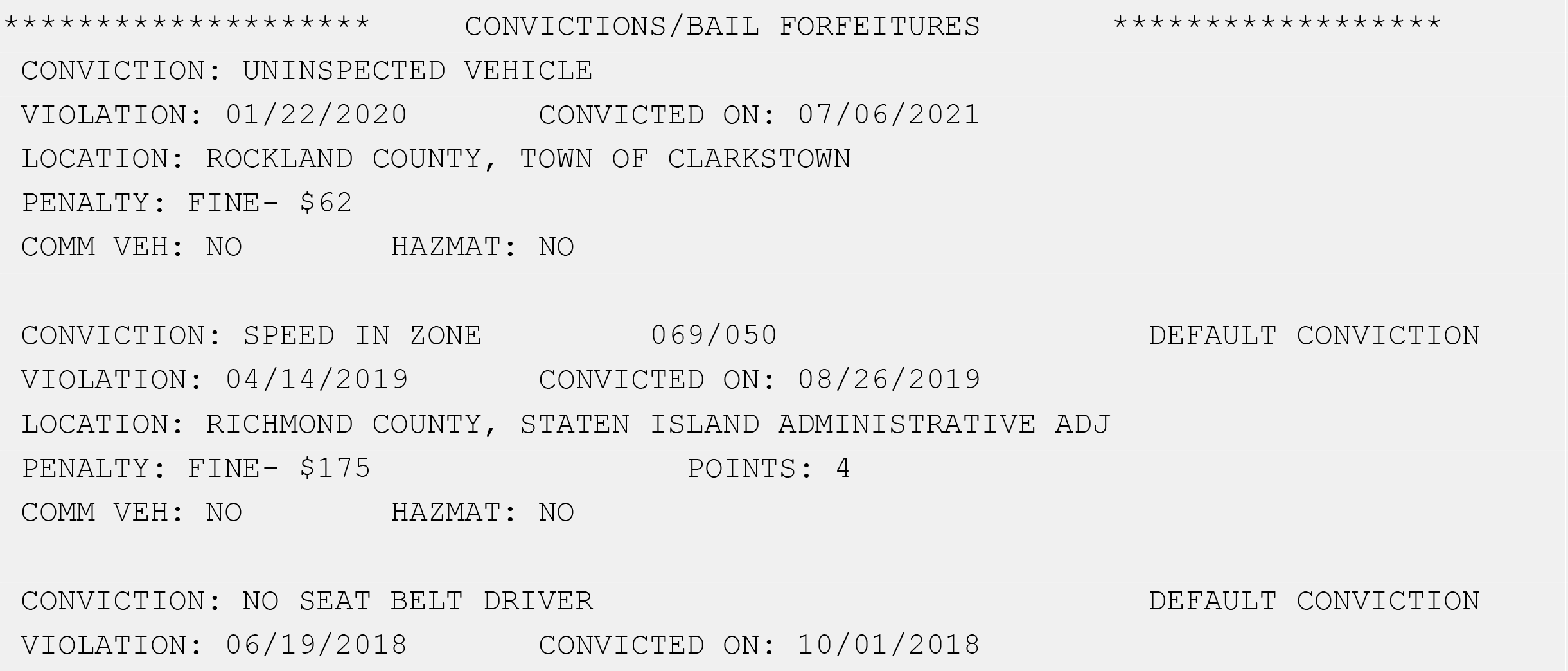
How Long Do Points Last on My Driver’s License?
Published on 7/17/2023
Updated on 3/19/2025
This is a question we get often and unfortunately the answer is not simple. There are two aspects to “points” going on your driving record. The first is for insurance purposes and the second is for Department of Motor Vehicle (DMV) purposes. They each have their own calculations.
In New York State, points appear on your driving record on the day of conviction. In New York, there are different types of driving records. There is a lifetime record and a standard driving record. Once a violation goes onto your lifetime driving record it never comes off unless the conviction is vacated (appealed). There is also a standard driving record. Your violation will come off your standard driving record on January 1 following three years from the date of conviction. For example, if you are convicted in March of 2025, the violation will appear on your record in March of 2026 (year 1), March of 2027 (year 2), March of 2028 (year 3), and will continue appearing on your record through December of 2028. It will no longer appear on your record in January of 2029. This timeline roughly correlates with insurance calculations. Your insurance company can raise your rates for 3-4 years after a conviction.
The above is the timeline for insurance purposes. This is not the same for DMV purposes. For DMV purposes it works as follows: The DMV can take action against your license if you amass certain violations within a certain time. The action they take may include driver responsibility assessment fees, suspension, and revocation. The relevant time period in which violations combine to trigger DMV action is always . For DMV purposes, the only relevant date is the date of violation. Obviously, no action is taken until there is a conviction, but upon conviction, the DMV will always look back at the date of the violation. The DMV will look at the eighteen months preceding the date of violation and the eighteen months subsequent to the date of the violation. Any other violations during that period (for which there was a conviction) will combine. The typical consequence of combining violations is the imposition of a driver responsibility assessment fee. More serious sanctions include suspension or revocation. The DMV action is almost always automated and taken pursuant to the entry of a court order. There is almost no human involved.
An important note when discussing DMV action. A violation appearing on your record is not necessarily mean that it still counts . A violation can appear on your record, but the violation “expired” because it was more than eighteen months ago and there are no other open or closed cases within eighteen months. On the other hand, a violation can already be off your record, but it is still counted towards future action regarding other violations committed within the same eighteen months.
If you need help tracking your violations and understanding the timeline and consequences of multiple convictions, you can reach out to the attorneys at the Benjamin Goldman Law Office. Our firm’s main practice area is traffic ticket defense. We are quite familiar with the nuances of the Department of Motor Vehicles points system. The Benjamin Goldman Law Office takes on all types of traffic cases in all areas of New York State. Our team will be glad to review your case free of charge and let you know what we can do for you. Contact us at your convenience.